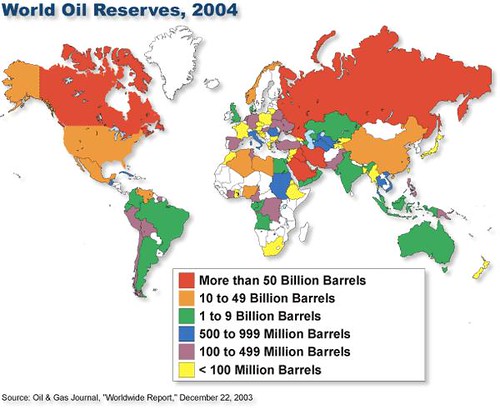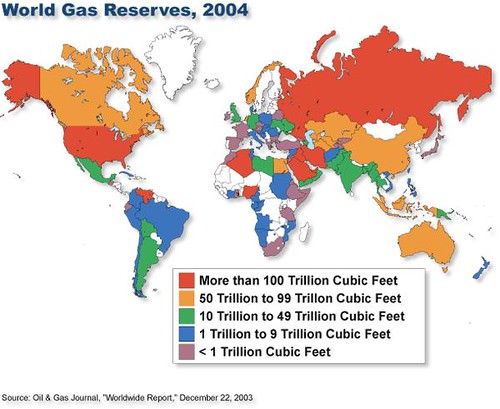This is waaay good
Ok, I am old, they are old, it's all pathetic... But me like it :-)
"Being ignorant is not so much a shame, as being unwilling to learn." Benjamin Franklin
Ok, I am old, they are old, it's all pathetic... But me like it :-)
Posted by fyi at 2:40 PM 0 comments
Labels: Miscellaneous
Às vezes você acha que o mundo não tem jeito. Só tragédia, conflitos, trabalho saindo pela orelha...
Mas aí aparecem textos como este. Uma pérola. Se eu pudesse colocaria essas partes aqui num quadro:
"Tinha muita esperança de ser 100% negro. Se fosse, eu ia pedir uma indenização muito pesada nesse país, mas sou filho dos culpados também"
"Miscigenação era barbárie. Não tinha isso de história de amor, era barbárie. Fico feliz em saber que parte da minha galera resistiu e compõe 85% dos meus genes"
"É uma pena eu ter tão pouco de índio"
Será que o cidadão ainda acha que "miscigenação é barbárie"? Afinal ele quer que os "brancos" (sera que existe alguém no Brasil 100% branco?) paguem para os 100% negros certo? E essa história de que ele queria ser parte índio? É porque eles são mais escurinhos? Quem é que explorava quem nessa relação???
Já imaginaram o piripaque que esse sujeito teria quando soubesse que negros africanos participavam ativamente no tráfico de escravos?
Quando eu era criança, naqueles remotos tempos aonde o politicamente incorreto ainda não era motivo de cadeia, brincavamos que os mais morenos da escola tinham um "pé na senzala". Quem diria, o tal "Seu Jorge" tem um pé na Casa Grande. E ficou bem mais bravo do que ficavam meus amigos moreninhos.
Mas claro que tudo isso é falta de compaixão minha. Como diziam meus amigos, sou somente um alemão branquelo. Será que estavam me chamando de nazista? Devia processar aqueles moleques. Ou então fazer um teste de DNA e mostrar que eu também sou um pouco africano!
É duro levar essa vida a sério.
Posted by fyi at 11:47 AM 4 comments
Interesting idea (see complete article here)
"You Can't Predict Who Will Change The World
Before the discovery of Australia, Europeans thought that all swans were white, and it would have been considered completely unreasonable to imagine swans of any other color. The first sighting of a black swan in Australia, where black swans are, in fact, rather common, shattered that notion. The moral of this story is that there are exceptions out there, hidden away from our eyes and imagination, waiting to be discovered by complete accident. What I call a "Black Swan" is an exceptional unpredictable event that, unlike the bird, carries a huge impact.
It's impossible for the editors of Forbes.com to predict who will change the world, because major changes are Black Swans, the result of accidents and luck. But we do know who society's winners will be: those who are prepared to face Black Swans, to be exposed to them, to recognize them when they show up and to rigorously exploit them.
...
If the success rate of directed research is very low, though, it is true that the more we search, the more likely we are to find things "by accident," outside the original plan. Only a disproportionately minute number of discoveries traditionally came from directed academic research. What academia seems more masterful at is public relations and fundraising.
...
America's primary export, it appears, is trial-and-error, and the innovative knowledge attained in such a way. Trial-and-error has error in it; and most top-down traditional rational and academic environments do not like the fallibility of "error" and the embarrassment of not quite knowing where they're going. The U.S. fosters entrepreneurs and creators, not exam-takers, bureaucrats or, worse, deluded economists. So the perceived weakness of the American pupil in conventional studies is where his or her very strength may lie. The American system of trial and error produces doers: Black Swan-hunting, dream-chasing entrepreneurs, with a tolerance for a certain class of risk-taking and for making plenty of small errors on the road to success or knowledge. This environment also attracts aggressive tinkering foreigners like this author.
Globalization allowed the U.S. to specialize in the creative aspect of things, the risk-taking production of concepts and ideas--that is, the scalable part of production, in which more income can be generated from the same fixed assets through innovation. By exporting jobs, the U.S. has outsourced the less scalable and more linear components of production, assigning them to the citizens of more mathematical and culturally rigid states, who are happy to be paid by the hour to work on other people's ideas.
...
The current discourse in economics, for example, is antiquated. American undirected free-enterprise works because it aggressively allows us to capture the randomness of the environment--the cheap Black Swans. This works not just because of competition, and even less because of material incentives. Neither the followers of Adam Smith nor those of Karl Marx seem to be conscious of the prevalence and effect of wild randomness. They are too bathed in enlightenment-style cause-and-effect and cannot accept that skills and payoffs may have nothing to do with one another. Nor can they swallow the argument that it is not necessarily the better technology that wins, but rather, the luckiest one. And, sadly, even those who accept this fundamental uncertainty often fail to see that it is a good thing.
Random tinkering is the path to success. And fortunately, we are increasingly learning to practice it without knowing it--thanks to overconfident entrepreneurs, naive investors, greedy investment bankers, confused scientists and aggressive venture capitalists brought together by the free-market system.
We need more tinkering: Uninhibited, aggressive, proud tinkering. We need to make our own luck. We can be scared and worried about the future, or we can look at it as a collection of happy surprises that lie outside the path of our imagination.
Nassim Nicholas Taleb is an applied statistician and derivatives trader-turned-philosopher, and author of The Black Swan: The Impact of the Highly Improbable."
Posted by fyi at 1:38 PM 0 comments
Labels: capitalism, science
Zimbabwe to head key U.N. Commission on Sustainable Development
The comedy factor of this kind of thing almost makes me ignore the mystery behind this kind of decision. Incompetence is one thing. Doing things that are clearly illogical is another.
And these are the same people that want to control which wars are just, how we should control our climate and so on.
Where are the street protests against this? Where is Al Gore? Where is Jimmy “Worst President Ever” Carter? WHERE IS MICHAEL MOORE?
Posted by fyi at 10:35 PM 0 comments
Labels: UN
You’d think they wouldn’t laugh about these things. But then again, that is Brazil.
Posted by fyi at 2:09 PM 0 comments
The last few days have been filled with a beautiful blend of ironic headlines:
Carter: Bush’s foreign policy is ‘worst in history’
Next thing you know he will be calling Bush’s economic policy a failure.
Wanted: A new Truman
Newsweek wants a new Truman??? Are we talking about the President who dropped the big ones, fought the Korean War and that has the all time lowest approval rate for a President (23%)? Just to put in perspective, at this same time (May 1951) in Truman’s presidency his approval rate was 24% compared to Bush’s current 34%. This is the grand-daddy of ironies. I’ve said long ago that Bush is very similar to Truman, for all the good and bad reasons. I just hope to live enough to see 40 years from now “Wanted: A new Bush”.
That of course, just adds up to the irony that the anti-war democrat congress has currently an approval rate of 29%.
Another interesting bit of political irony is that most critics of Bush’s immigration plan are from the right. You would not believe the deluge of criticism coming from talk radio about this (one big and much welcome exception is the great Medved). The media of course downplays all of that, and continue to say that Bush is divisive even within his own party.
You just can’t win with these people.
Posted by fyi at 11:34 AM 3 comments
Labels: Bias, Left-wing, Media, Right-wing
The Benford's law of controversy:
Passion is inversely proportional to the amount of real information available.
Godwin's Law:
As an online discussion grows longer, the probability of a comparison involving Nazis or Hitler approaches one.
Hanlon's razor (very useful)
Never attribute to malice that which can be adequately explained by stupidity.
And my own (still unnamed) little contribution:
Generalizations are the best way to run away from a serious debate.
:-)
Posted by fyi at 2:56 PM 0 comments
Labels: Miscellaneous
This MR post about this “No One Makes You Shop at Wal-Mart” book is really great.
It’s interesting that every time you look deep enough on these theories around “market imperfections” you end up falling into some great, brilliant bureaucrat sitting in a desk making decisions for everybody else.
Something else that fascinates me is this idea that all these forms of herding are illogical. The fact that you buy at Wal-Mart because your neighbor does makes total sense to me. The part that is always missing in the analysis is that this is just one among many factors, and it has a subjective importance to different people. The questions should be: Would you continue to shop at Wal-Mart if you didn’t like it just because your neighbor continues to do so?
Something else that always makes me laugh is how these “managed” economic theories end up going back to morals. Something that lefties hate in the social arena. They actually have the same ideals about “going back to the good old times” that extreme conservatives have on the social issues.
People say the extremes tend to be similar but I’d argue that the idea that you can control your economy in some moral way is inevitably extremist.
The irony of the book title is almost overwhelming. Nobody really makes you shop at Wal-Mart. And the author would really like to change that.
Posted by fyi at 2:19 PM 0 comments
Labels: capitalism, Economy, Left-wing
I’ve heard rumors before about the Iraq parliament’s lack of ethics.
But hey, I was born in Brazil. These things don’t shock me that easily.
Then today I heard on NPR a Kurdish law maker called Mahmoud Othman saying the following:
"Every month we work two weeks," Othman said. "That's another point people should know about ... we are working half the time. So it's two-to-three hours a day, two weeks a month and then there is a holiday. So it's sort of a disaster."
To make the disaster complete, here is what another law maker said about the vacation issue:
“Lawmaker Shatha al-Moussawi says U.S. objections to the vacation schedule here have only made matters worse, saying it sends a message that Iraqis "don't have any control" of their own country and "receive orders from America."
So you have these people working 3 hours a day, 2 weeks a month, with absolutely no political progress to show after all this time, and when the US complains they tell us to back off. And all the while you have American soldiers dying to protect these same people.
I am as favorable as it gets for this war. I think removing Saddam was right; I am sure it was strategically a good decision; I know that a democracy in Iraq would be historically huge.
But there is a limit for everything. If the Iraqis can’t make the effort to postpone their vacations and maybe work 8h a day just like the rest of us, maybe it is time to admit that this enterprise has not worked and we should get out of there.
This is all very sad.
Posted by fyi at 12:45 AM 0 comments
Labels: Iraq
Interesting coincidence: A few days ago, a telegraph article talked about how Europe socialized medice systems are really bad at getting new cancer treatment to their patients and how that is linked to Western Europe’s cancer survival rates being much lower than the ones in the US.
Now today, this report from the Commonwealth Fund says that the US ranks last in “health care quality” among five other rich countries (Germany, Britain, Australia, New Zealand and Canada).
I honestly don’t have the patience to find out all the parameters of this study, but the MSNBC article mentions some of them at the end that are very interesting:
“The United States had the fewest patients — 84 percent — reporting that they have a regular doctor.
And U.S. doctors are the least wired, with the lowest percentage using electronic medical records or receiving electronic updates on recommended treatments.”
Well, I don’t have a “regular doctor”. And the reason is not that it is difficult to find one or that it is too expensive… It’s quite the opposite! My plan offers so many doctors that when I have a problem I go directly to a specialist and not to a “family” doctor.
And the point about being connected is really ridiculous. The US has privacy laws against keeping electronic records that are accessible to other doctors that have nothing to do with the quality of health care!
Now I understand that comparing trade-offs is not easy. But it is really hard to understand why the people who defend socialized medicine have to go through these hoops to make their point, while the other side (for a more capitalist approach that is) can show specific measures of things that work better.
This reminds me of a “factual joke” I heard the other day. Do you know who are the biggest opponents to a universal health care in the US? Canadians. They cross the border in huge numbers for the MRI, hip replacement and other hard to get treatments that they would have to wait for months in the north side of the border.
If you really want to simplify the issue, this comment from the Captain’s quarters post does it best:
“You're health care WILL be rationed. Either by availability (long lists and inflexible calendars) or by price. I'd rather have the chance to come up with the money somehow.”
Posted by fyi at 12:26 PM 0 comments
Labels: Europe, Health Care
There are some of my favorites from places we visited recently (click for bigger version):
Cannon Beach, OR
 |  |
 |  |
 |  |
 |  |
Posted by fyi at 9:57 PM 1 comments
Labels: Miscellaneous, Nature
I am very, very tired. So all I can give you are some pictures and links. You can imagine what I would write about them. Maybe you can even comment about it and people won’t even notice I haven’t actually written a post.
Think of me as your favorite middle man.
Introduction to Oil and Natural Gas

Free Cloclô
U.S. divorce rate falls to lowest level since 1970
Posted by fyi at 8:08 PM 0 comments
Labels: Brazil, Economy, Miscellaneous
This is just great (From the NYT):
“The French are notoriously resistant to change, and any new president would be hard-pressed to deliver any dramatic departure from the way people here live and work and get along with each other (or don’t)....
Mr. Sarkozy promised pension reforms and limits on unions’ ability to strike. Already, the most critical union federations are warning him to expect people in the streets if he tries to push through either change.
“Radical change in an authoritarian manner will lead to a situation of blockage,” said Michel Grignard, national secretary of the French Democratic Confederation of Labor. French unions are strong in part because the right to strike is written into the Constitution.
And then there is the French love of their vacations.
Parliament usually is away from mid-July to October, but Mr. Sarkozy has suggested he would call a special session to push through legislation while most of the French are vacationing — and when it would be hard for unions to mobilize them.”
Posted by fyi at 11:12 PM 0 comments
Labels: Europe
It’s interesting to look at what happened to the two biggest opponents of the US war in Iraq. Both Germany and France turned to the right, almost proportionately to their level of criticism of US policy.
That of course could be just a coincidence. After all, internal politics are more important and the “Old” socialist Europe has been falling apart for quite some time. But still, it is important to notice how Markel and Sarkozy made clear right away that they will rebuild relations with the US. And as far as I know, the Iraq war is still there...
If Gordon Brown does succeed Blair in England, what you have now is the three main powers in Europe much more aligned with the US than they were in Sept 10 2001.
The trend is not restricted to Old Europe of course. Japan also turned to the right, Australia remains there and our Canadian friends also did the same.
Even Sweden has kicked the lefties out.
Funny thing who the divisive George Bush continues to reach his goals being such an incompetent, uh?
Posted by fyi at 1:00 PM 2 comments
Labels: Global politics
One of my favorite inside jokes with my wife is to say that we are actually liberals. We are vegetarians (which by the way, makes us much more ecofriendly than anyone who drives a Prius and believes in Al Gore – and still we drive high mileage cars); we are in favor of civil unions for gays; we are rabidly against racism; my wife is totally against death penalty; we are very much pro (legal) immigration; we don’t follow any religion.
There are of course some political beliefs that we follow that match with the right: we believe that you need a strong military and that you need to use it from time to time; we are pro-life; we think people should be able to own a gun within some guidelines; we are against high taxes and huge social programs.
But the question remains: Why are we conservatives that are somewhat liberal and not liberals that have some conservative traits?
I believe the answer has to do with our attitude towards other people. Again let’s talk about vegetarianism. We love it. I had a bunch of health issues before and now they are gone. My wife can tell you all the horrible atrocities animals suffer. All and all, it’s really a clear belief for us that at this point in our life we don’t need to eat animals and a lot more people could do the same.
However, you won’t see us protesting with PETA. We don’t want the government to outlaw eating meat. You won’t even see us swearing at people who have barbecues in their houses.
We won’t be at these barbecues either, but there is a huge difference between not doing something and wanting to force other people not to do it.
I think that this “militant” approach is what irritates us most about liberals and people on the left in general. It’s not just the silly idea that you need to save the world in all fronts. It’s more this notion that people are not able to make decisions; that information is never enough, and that you need to find little ways to trick people into doing what you want them to do.
There is also the feelings vs. logic issue. I go nuts every time I hear someone say this kind of stuff, or when I hear people trying to justify government economic actions on the “this will help the helpless” banner. Sometimes I even agree with the outcome, but I can’t stand the demagogy.
So the means do make a difference after all. At least for us.
Posted by fyi at 12:54 PM 7 comments
Labels: democrats, Economy, republicans
No, I am not talking about Wal-Mart. It’s Chapolin Colorado! He wants to steal some more of the companies in Venezuela, and the excuse is the usual. Check it out:
"Chavez threatens to nationalize banks, steel
“Private banks have to give priority to financing the industrial sectors of Venezuela at low cost,” Chavez said. “If banks don’t agree with this, it’s better that they go, that they turn over the banks to me, that we nationalize them and get all the banks to work for the development of the country and not to speculate and produce huge profits.”
...
“If the company Sidor ... does not immediately agree to change this process, they will oblige me to nationalize it,” Chavez said.
...
“Sidor has to produce and give priority to our national industries ... and at low cost,” he said."
Posted by fyi at 5:29 PM 3 comments
Labels: venezuela
"Ms. Royal, who has often been accused of making factual errors, struggled to prove she was right.
“Let’s go to the bitter end on every issue,” she said. She also said, “I know all the topics well.”
While they were speaking about the economy, she summed up her philosophy of leadership, saying, with a little smile, “I will be the president of what works.”
Mr. Sarkozy replied, caustically, “People don’t vote for us to go complicate what works, but on the contrary, to fix what doesn’t.”
Still, Mr. Sarkozy was gracious at the end, expressing his respect for Ms. Royal’s “talent and competence.” But she kept her distance, saying, “I abstain from personal judgments.”
That's from the NYT's account of the French presidential debate.
Some things are really the same all around the world.
Posted by fyi at 12:48 PM 1 comments

This is the future. Be afraid!
Exasperated by Chávez, more Venezuelans leave
"Middle- and upper-class Venezuelans are leaving the country in droves
...
U.S. embassy officials say inquiries for U.S. visas rose by one-third from March 2006 to March of this year, and requests to obtain U.S. passports — mostly by people claiming to be sons and daughters of U.S. citizens — have doubled over the past two years. Inquiries for Canadian visas are up 69 percent since last year, officials at that embassy say."
Last one out turn the lights off.
Posted by fyi at 8:10 PM 1 comments
Labels: venezuela
